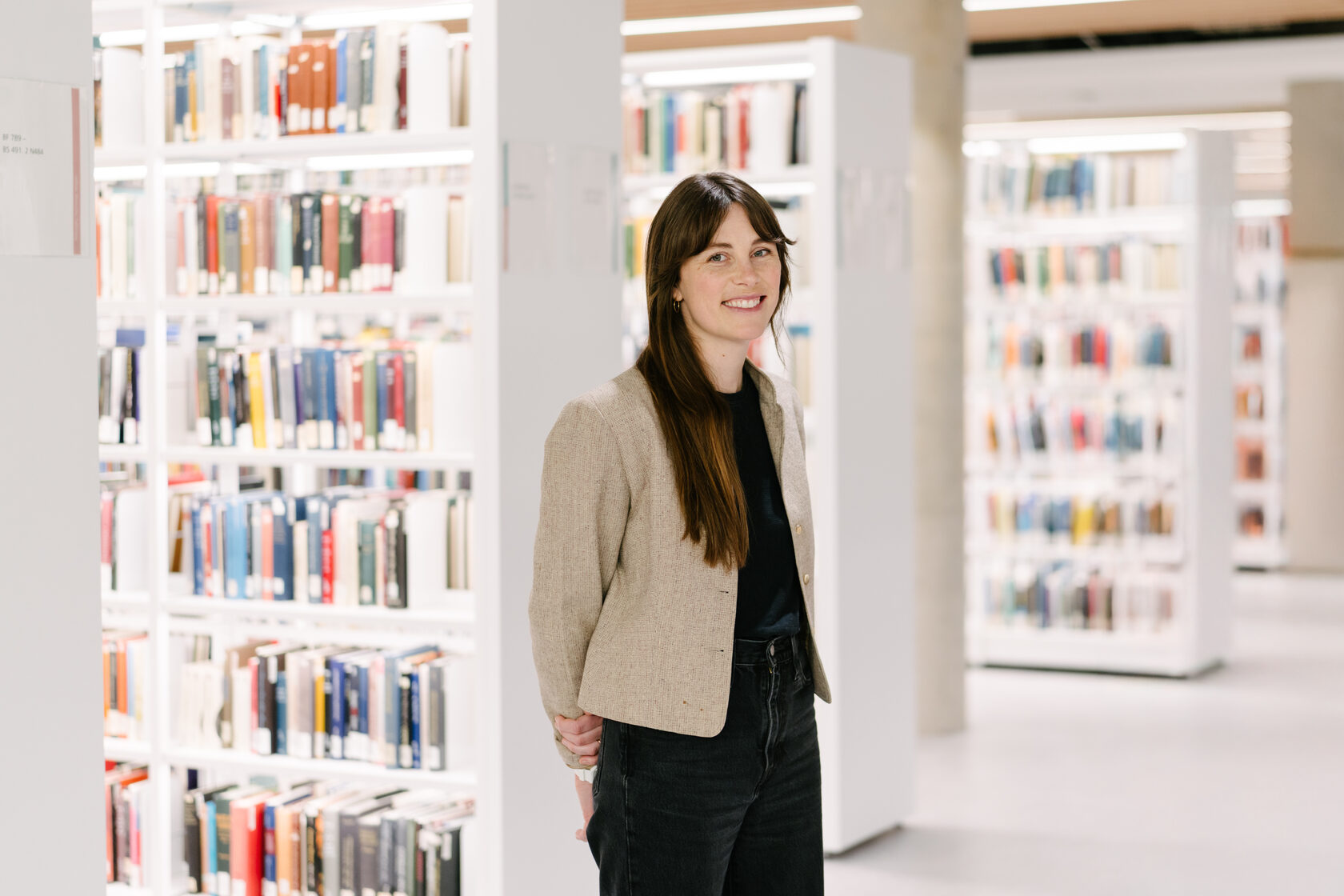Student life, sometimes so monotonous, takes on bright colours in the auditorium reminiscent of an amphitheatre. The stage is partially surrounded by stepped rows of seats, where the students settle. Here we talk about Athens, Plato, and the development of democratic thought, all of which serve as a foundation for future political scientists like myself. And everytime, I can’t help but note the instructor’s brilliant presentation of the material and genuine interest in further investigating her area of expertise.
Before learning about Dr. Ella Street’s background, she riveted my attention with her persona and her enchanting lectures. The clarity and passion in her speech created a sense of importance of our presence here as students. She put her dedication into every lecture, thereby showing her respect for us as future specialists and her commitment to bringing history to bear on our present moment.
Professor Street’s extensive teaching and academic experiences span across the most prestigious institutions of North America, including Cornell University, Georgetown University, and the University of Toronto. Her research, with two books under way, centres on democratic judgment, popular participation, political identity and theatrical politics in the history of political thought and practice.
However, what truly sets Dr Street apart, beyond her impressive teaching skills and accomplishments in the world of academia, is her personal journey to becoming the political theorist she is today. Her story opens the curtain on the world of working in academia, true commitment and the profound belief in the power of education. In this interview Dr. Ella Street reflects on her educational path, self-discovery, and making a lasting impact on upcoming generations of political scientists.
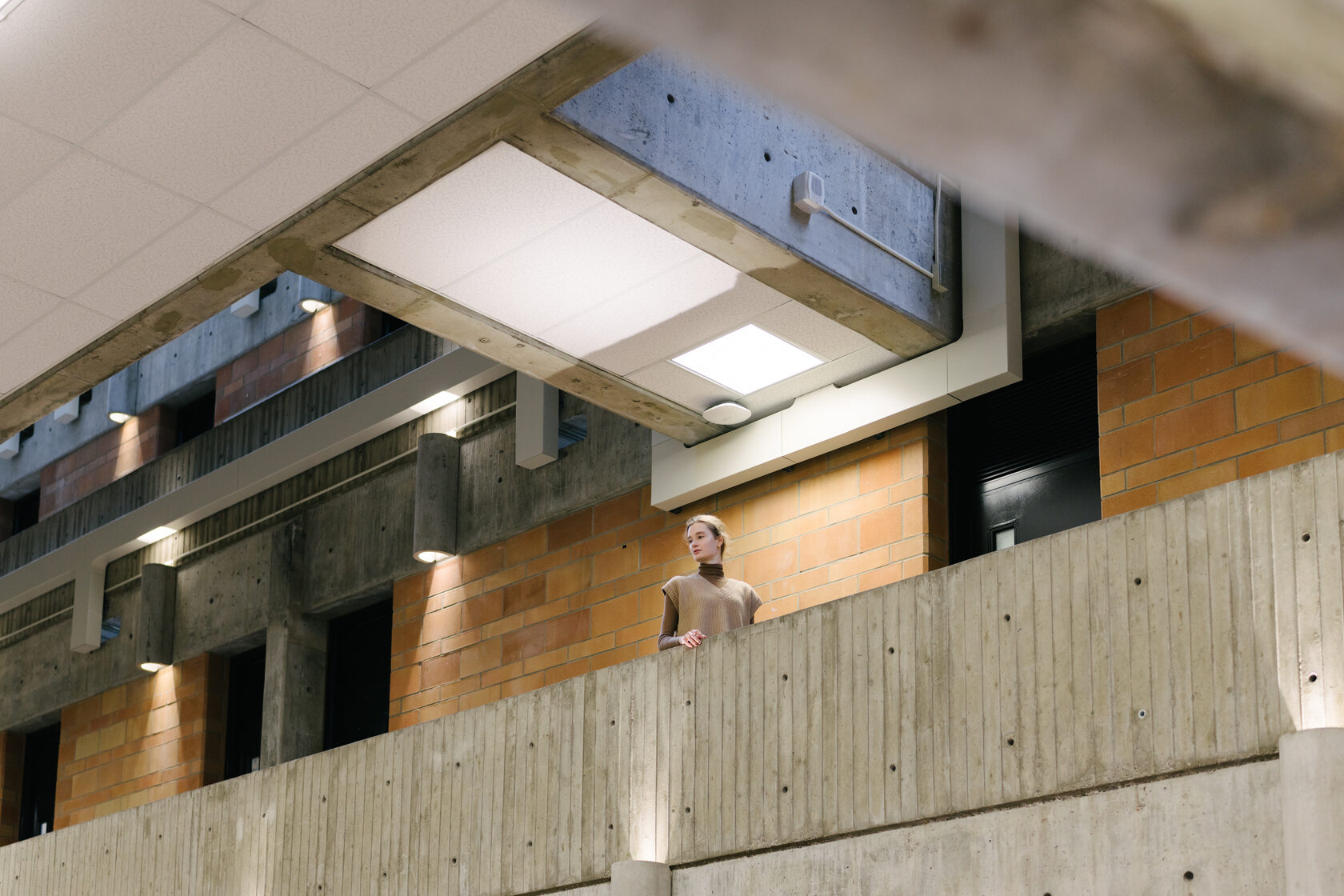
Could you share how your interest in political theory first began and what drew you to the field?
I went to a small liberal arts college - Colorado College to become an environmental lawyer because I was very much an activist at the time, and wanted to protect the environment. In my second year there, however, I took a political theory course that raised multiple fundamental questions, such as “what does it mean to be human?”, “What is the best way of life?”, “What is the most just society?”. I realized I couldn't answer those questions in any thoughtful, clear way. That really compelled me and gripped me, and suddenly I felt my primary task was to try to wrestle with those fundamental questions.
There were certain moments in political theory classes that really struck me. They were much more philosophical questions. So for example, I remember a question that one of my professors had raised that does not look political at first glance, but it was in a political theory course. The question was “Are we really happy if what we believe is the basis of our happiness is actually false?”. This is a very existential question, implying the need for true knowledge in order for one’s happiness or one's feelings of contentment to be true.
One thing I love about political theory is how all canonical thinkers like Plato or Rousseau or Nietzsche consider the nature of human beings and what it means to live well and political questions together. So for example they ask political questions like, “What is the best political regime?”, “What is the nature of justice?”,”How should human beings live together?”, “What is the nature of law or the relationship between the individual and society?”, but those questions always lead to fundamental existential questions about what it means to be a human being and what is the nature of our happiness.
I find that kind of ability to both dwell on these questions that are so relevant to all of us just by virtue of being human, and then also think about how the answers that we give to those questions have implications for the political community really exciting.
Your academic background spans diverse institutions and educational cultures. How have these experiences shaped your approach to teaching and studying political science?
I completed my master's degree in Government at Georgetown university, in Washington DC, after completing my bachelor's. And then I was going to do a Ph.D program there, but I decided the program wasn't quite right for me, so I transferred to University of Toronto to complete my Ph.D. Then I did a two year postdoctoral fellowship at Cornell, and then came back to the University of Toronto where I'm teaching now.
In Canada, I am constantly learning from my students and their unique perspectives, not being American, growing up Canadian, having subtle but very different perspectives on politics. It’s been really interesting to teach Canadian students and American students, as well as to teach students at large universities versus small liberal arts colleges.
When I taught at Georgetown, a lot of the students were very career focused - they wanted to do pre-law, or go into politics - and had a strong sense of what they wanted to do. Students at University of Toronto, despite also often having a strong sense of direction, have a lot of curiosity and openness to asking bigger questions and delighting in the intrinsic importance of those questions. I have found that both here at UofT and at Colorado College. It’s wonderful to teach students who are very ambitious and career oriented, but I also would like my students to get caught up in the questions and think about them on a much more personal level.
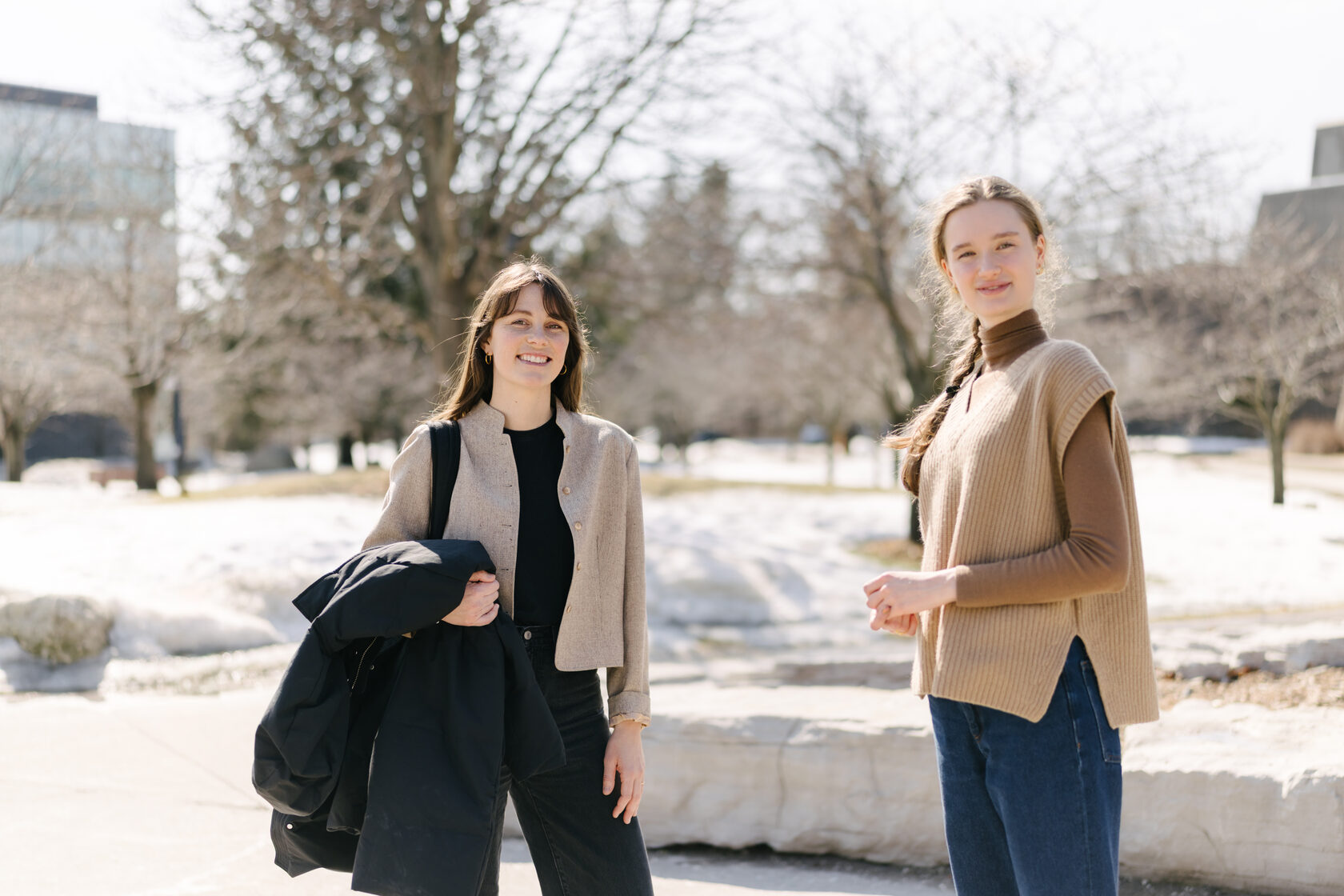
What initially attracted you to Georgetown University, and how did your time there influence your intellectual development?
I got into the graduate program at Georgetown due to many various political theorists I was interested in working with. One of them was a scholar of Tocqueville, and he was really reflecting on democracy in America. Another was thinking about literature and politics, and how we can think about politics and political culture. It’s also interesting to study politics in the heart of the empire, so to speak.
When you're in DC, you genuinely feel that you are where the politics is happening, where many students are already considerably involved in politics. That adds excitement and drama to some of the political questions that we're contemplating, due to the close proximity of contemporary events, at least in the American context.
However, even though it's probably not the case now, the political theory faculty who I went to study with were quite conservative and our intellectual priorities didn’t always align. This is something that would be especially relevant to people who are thinking about graduate school; it is immensely important to find academics whose research you relate to and have regard for, to surround yourself with scholars whose habits of thought you want to develop, and to build an intellectual community that you like. Unfortunately, it's very difficult to get a full picture of that before you are actually at a place, which, of course, is always the trouble when you're trying to pick a school.
So I had no idea what graduate school was about. When applying, I only had a vague sense of the faculty at Georgetown and, in some ways, that decision was a random decision.
Only through my experience being there did I start to discover myself in terms of my own intellectual desires and interests. That is when I began researching the program at the University of Toronto, which is a very well respected program in political theory, with incredible scholars and diverse areas of study. One of the amazing things about studying political theory or political science at UofT is you can meet scholars specialising in every possible area; there are scholars who dedicate themselves to political theory, history of political thought, radical democratic theory, comparative political theory, early modern political theory, etc. There's an entire spectrum of political theory subjects and approaches covered, which was very appealing to me!
And of course, University of Toronto has significant demographic diversity. It is a real strength of U of T, which I have not experienced anywhere else where I've taught or studied. Having that kind of exposure and integration with people who are, for example, first or second generation newcomers or those having family connections to different places makes UofT such a rich place to study and teach!
Reflecting on your time at Cornell, how did that environment shape your values, research interests, and long-term ambitions?
Not only are the faculty there brilliant, they are also very generous with their time and are very dedicated to the on-campus intellectual community. For example, every other week, there is a political theory workshop where someone presents a paper they're working on, and everyone comes together and reads the paper and discusses it. Because it's Cornell, many incredible scholars are invited to present their work.
If I were to compare Cornell to UofT, because Toronto is such a fun, amazing city, people also are off in the city living their lives. Whereas at Cornell, the biggest things that are happening in the town are on campus. So it's very academic. The faculty and students are much more available to attend events and be more focused on campus community involvement.
I also had a lot of freedom to do my own research, working on a new project on theater metaphors and politics, doing a multi period study on different moments in the history of democratic politics where that language starts to circulate and becomes important for thinking through different political problems, and having access to political theorists who were thinking about similar issues. There was also a lot of interdisciplinary exchange.
This is how I ended up writing a paper on public theater in eighteenth century England. I went over to the English department and just had coffee with an expert on eighteenth century England, which is not a period that I know much about, but they were totally willing to listen to the perspective of a political theorist. So I had a great time at Cornell!
In your view, what role does education play in shaping not just careers, but character and worldview?
I think that one’s time in university is a period of character formation. Obviously, people have different journeys through the education system, and not everyone is going to want to become an academic like myself. Some have much more specific vocational career goals. But I think it is important not just to think about future employment and the job market, but also what kind of person you would want to become and what kind of habits of thought you want to cultivate.
So for me, for example, it was in university I learned to read texts carefully and thoughtfully, as well as to think deeper and more profoundly than I had done prior to going to university. A less visible outcome of education that is not necessarily obvious on paper or one that hasn’t translated into any kind of professional outcome per se is the company that I keep with myself. When you’re immersed in poetry, literature, philosophy or history, the world becomes a much more interesting place. The ability to appreciate and enjoy the intrinsic pleasures in the aforementioned is, I think,very, very important.
If you have a good education, you come out realizing how little you actually know, and this knowledge makes you a more humble, more cautious, careful person, which I think is actually vital for our politics and democracy.
Based on your academic journey, what do you believe is missing in today’s higher education system, and what changes would you advocate for?
Broadly speaking,universities for various reasons are under a lot of pressure to defend themselves. One of the ways that universities have tried to defend themselves is by arguing for their own utility and usefulness.
Nowadays the importance of higher education is framed in terms of alumni competitiveness on the job markets, transferable skills, or future income. That's part of what a university is about. But I think another part of what a university is about is having four years where you're given a break from the fast pace and demands of everyday life.
Traditionally, universities were modeled on the monastery; a place away from time, with a notable privilege of having four years where you suspend all practical worries about contributing to society and making a living. It is a period of time when you're coming of age and just dwell in learning, asking tough questions, and delighting in the intrinsic pleasure of being a curious human being.
I think for me, what is missing is more defense of that non-utilitarian aspect of higher education, which is about thinking about our humanity and what it means to be human and enjoying the privilege of learning for its own sake.
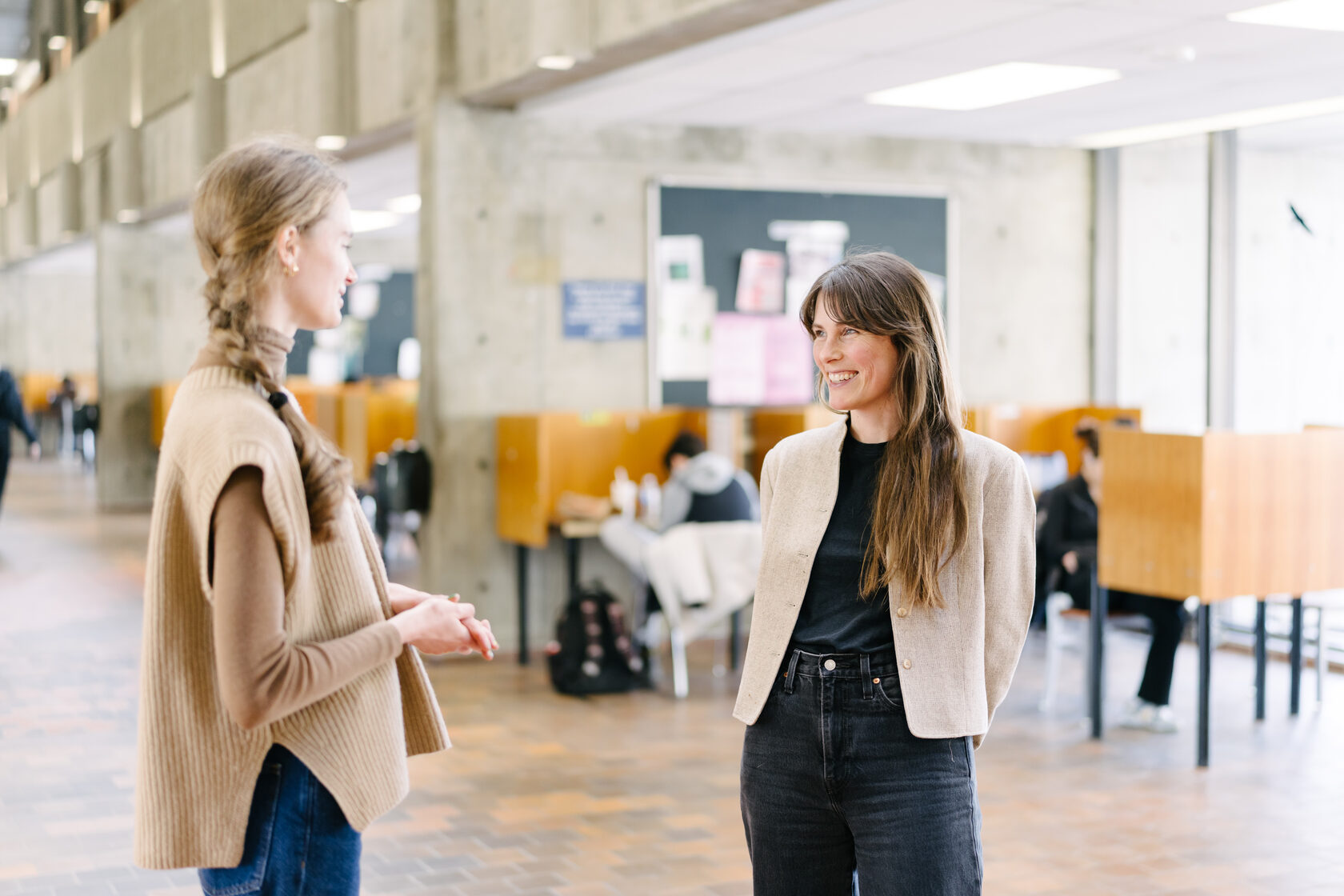
Academia is known for its competitiveness and uncertainty. How have you navigated the challenges of pursuing a career in this field?
As I have received my PhD, I'm currently on the job market. Just to give readers a sense of how horrible the job market is: this past fall, I applied to any job for which I was qualified in Canada or North America, and there were eight. I know at least 15 political theorists only from UofT that are on the job market. There's hundreds of scholars applying to these jobs, hundreds and hundreds. So it's incredibly competitive!
Even though there are many different career paths that one can take with a PhD in politics, I want to be a teacher and I'm very invested in staying in the academy. But there’s no guarantee that will happen. So, unfortunately, my advice for people going into PhD programs is, do it because you want to do it, but know that depending on your field, it may be unlikely that you’ll get an academic job.
That said, I've been quite lucky to get a postdoctoral fellowship, and then I had an affiliation here at UofT, and have had ongoing institutional support to continue on in academia. And now I'm teaching as a sessional instructor, which is great in terms of the teaching.
UofT students are clever and very engaged, which is great, but I don't have job security. So it's not totally sustainable for me. I will do it maybe for one or two years, until I get a permanent position. And if I don't end up getting a permanent position, then I'm gonna have to pivot in some way.
What motivates your ongoing passion for teaching, research, and the academic life, despite the pressures and uncertainties?
I love intellectual life. I love being a part of a community of people who are thinking and reading and talking and have exciting conversations about ideas. Despite all the problems that universities face, a university is still one of those rare places where you walk down the hall and every one of your colleagues is in the middle of doing research on some topic that they're passionate about. It's just a very exciting way to live and to continue to be surrounded by ideas and learning.
Even though there are moments when I think I should get another job because I have a PhD, I consider how much I love teaching and doing research and I keep on this academic path. Writing is very challenging and stressful, but I ultimately do love it. And so I just can't quite quit. You know?
What has your experience been like teaching at the University of Toronto, and how does it compare with other institutions where you’ve taught?
I love teaching at UofT! I really, really do! I already mentioned this, and everyone always says this, so it feels almost cheesy to reiterate it, but it is so diverse, and that is really one of its strengths. For instance, when I ask a question about the individual and the individual's relationship to society in class, someone who grew up in China will have a very different answer to that question, than someone who's from America or Venezuela.
When I was teaching at Georgetown, I remember when we read Karl Marx and so many students were opposed to his ideas, while in Canada there is usually more familiarity with the idea of, for example, a social welfare state. That kind of political background and context changes the way that students relate to different ideas, which I find really interesting. At UofT students are generous with their ideas and interested in other people's views, and they have a lot of respect for diverse perspectives.
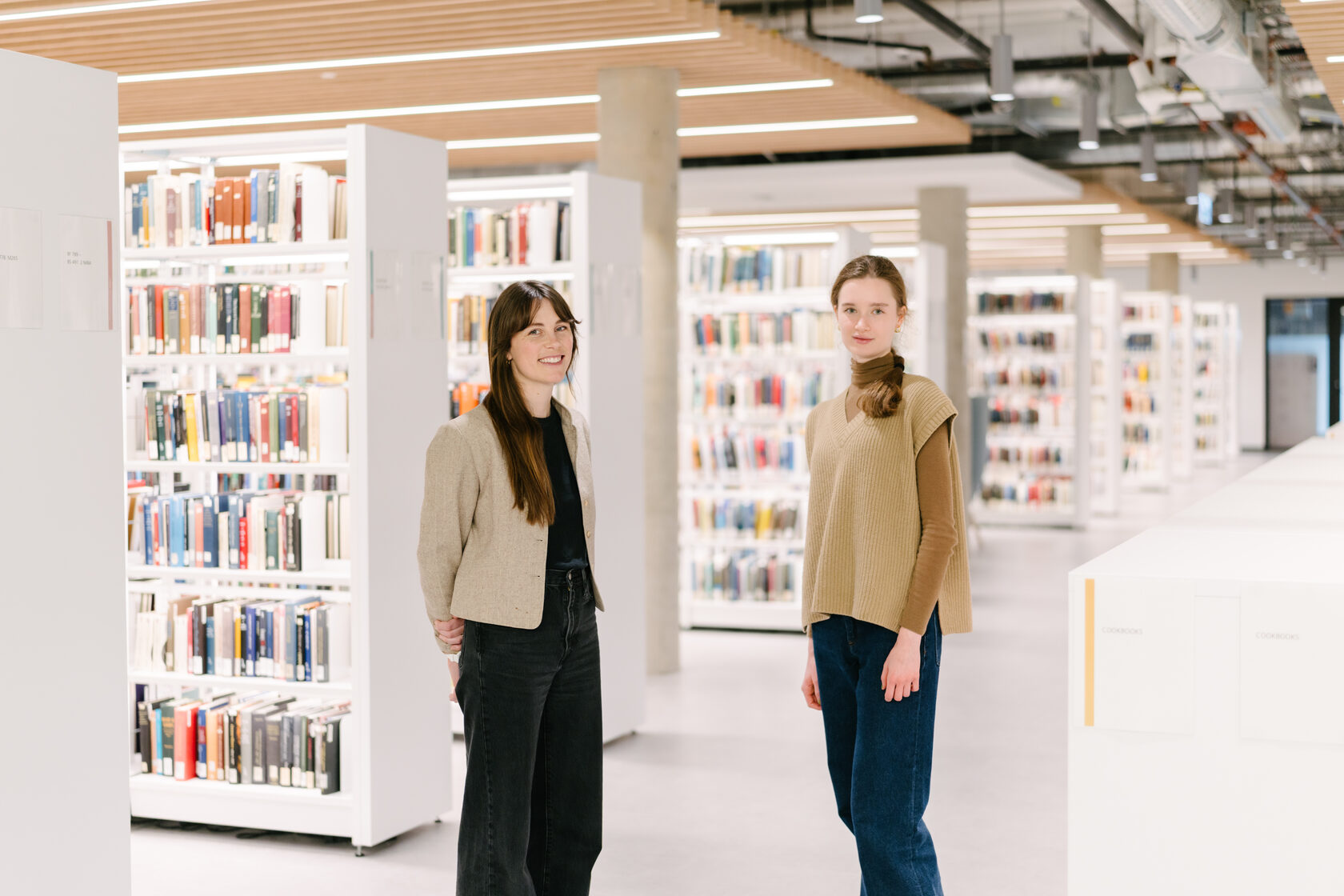
Your lectures are known for their clarity and engagement. Is public speaking something that came naturally to you, or did you develop it over time?
I'm comfortable speaking in public. I think that is something somewhat natural, but I don't think that teaching comes naturally. Teaching really is one of the reasons why I want to continue on in academia. And the reason why I love teaching is because I never feel satisfied with how I've done. I love being in a line of work where I always want to do better, and I always feel motivated after a class to find the ways to do better the next time. I think that the skill of teaching, which I have not perfected but I want to improve, is all about how to communicate ideas in a way that engages students, figuring out how to explain a concept in the most accessible way. That takes a lot of practice.
Have you reached a moment in your career when you felt a sense of mastery or confidence in your teaching abilities?
I think that I'm good at teaching, but every class poses new challenges. So I think I could be a great professor, feeling confident that I could succeed in my profession for sure. But there is a lot of room for growth, and I'm excited by that. I would like to be one of those lectures who doesn't even need notes, just going there and having these exciting anecdotes and examples. It's definitely a fun goal to have!
Can you tell us more about your current book projects? What inspired them, and what challenges have you encountered along the way?
My doctoral research was on Athenian democracy. Overall, I'm interested broadly in democratic assembly when citizens come together to make judgments. In Athens specifically, citizens come together at the theater to watch tragic drama and comedy and reflect on questions of justice in those different contexts. I ask: how do those citizens evaluate questions of justice differently when they're leisured spectators watching a performance on stage, compared to when they are judges or jurors required to come to a decision with real consequence for their fellow citizens? So that was my doctoral research, which is now my first book project.
But while I’ve been at Cornell, I started another project that I really love, and I’ve been working on that too.This new project is about theater metaphors and politics, and it spans multiple historical periods. There’s some continuity with my other work because I’m still interested in what you might call “theatrical situations”—moments where actors are on stage, or elites or litigants are giving speeches to an audience of citizens. That kind of setup shows up in the Athens project too.
But in this second project, I’m looking more at how theater has long been a space for exploring major political questions—and how we use the language of theater to talk about politics and even to shape how politics works. For example, there’s this tension in democracy around how theatrical politicians should be. On one hand, there’s anxiety that politicians might be too dramatic, too much like actors, and that can feel deceptive. But on the other hand, democracy depends on rhetoric. Politicians have to persuade, to speak well, to perform in front of an audience. So where’s the line? When does political speech become manipulative performance, and when is it just a necessary part of the democratic process?
In terms of challenges, a scholar is kind of adrift at sea. It can be a very lonely enterprise. I haven't found that because I'm a very social academic, I like to go out for coffee with friends and talk about what we're working on. But at the end of the day, if you're an academic, you're gonna be writing or researching in your office by yourself. So it can become an isolated activity that can be challenging.
Another challenge for me has been that I’m not writing a popular book—I'm writing an academic one. It’s meant to engage with debates that matter a lot within academia, but not necessarily to everyone else. It contributes to how we understand Athens and to democratic theories of judgment, which is valuable—but would my parents want to read it? Probably not.
Eventually, I’d love to write books that my parents—who didn’t get PhDs—would actually want to pick up and enjoy. Books that are immediately accessible. That’s also one of the reasons I hope to have a long career in academia. I want to be able to tell stories about politics, about the history of theatrical politics and democratic assemblies, in ways that resonate with broader, more popular audiences.
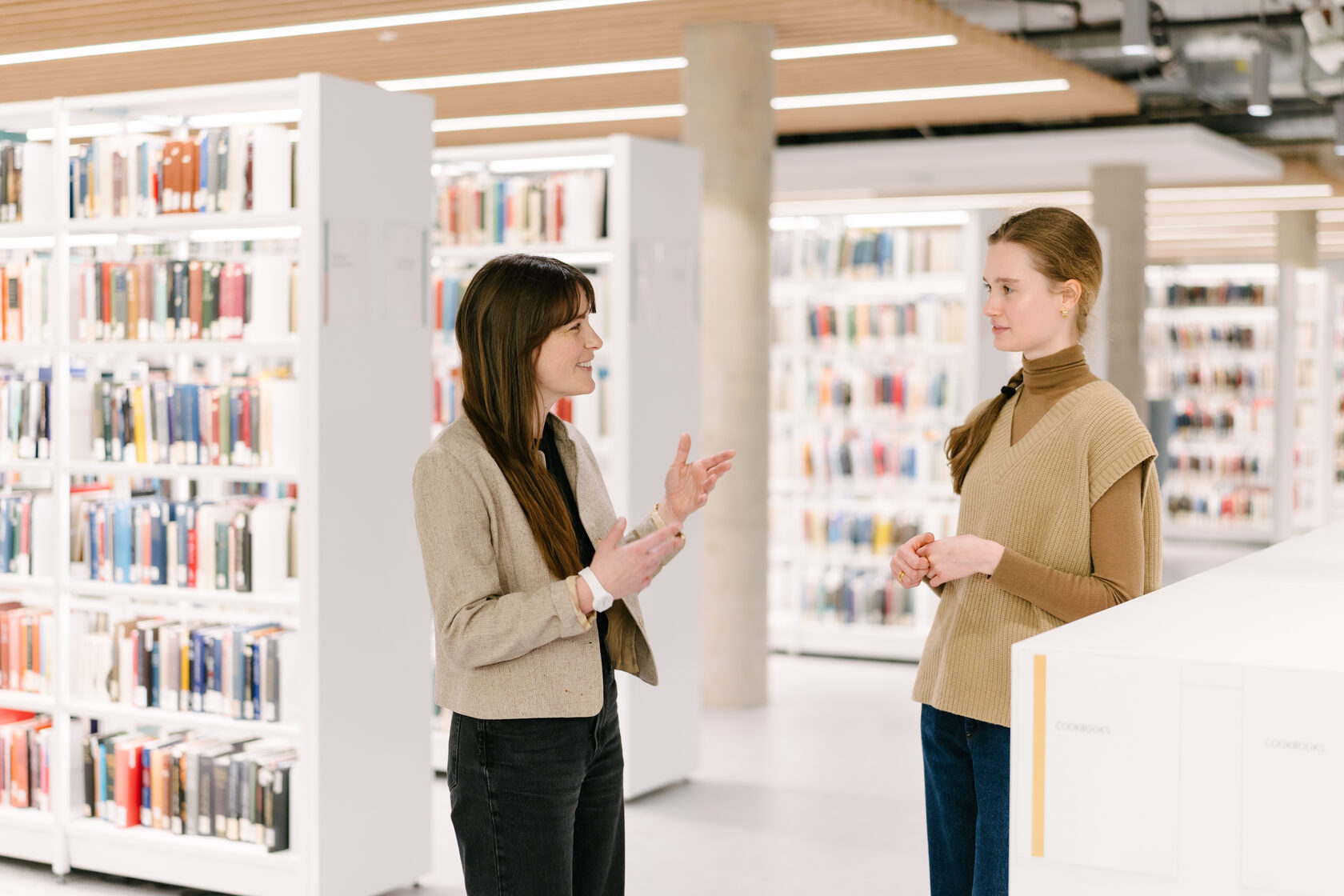
Blitz
Could you name a few political theorists who you think are doing great work?
Kevin Duong, Melvin Rogers, Alyssa Battistoni, Rob Goodman.
What are three things you are proud of?
I'm proud of my article that is coming out soon on public theater houses in eighteenth century England. I told a very interesting historical story, but it was about a period that I didn't know much about. It took a lot of courage to allow myself to just dive into this period and learn even though it wasn't my background.
I'm proud of my commitment to students. I think that is something that some professors and scholars don't really prioritize, and I do prioritize students. And I am proud of that because it matters.
I'm proud of my ability to continue doing my scholarship and work because I love it even though I haven't been given a permanent position. I'm proud of my endurance.
What are you dreaming about?
Honestly, to be one of those, kind of wild, zany professors who has an office full of books, who's always ready to have a conversation with a student who knocks on my door.
Top three of your favourite books?
I love "My Brilliant Friend" by Elena Ferrante.
I've got to say Plato's "Republic", only because it's a never ending source of challenge and interest, and it was one of the first books that I read as a student that made me excited about doing political philosophy. And what's my third favorite book? Well, it's not a book, but, "Antigone", the play.
Favourite film?
It's an Iranian film called The Separation, by Asghar Farhadi.
What makes you happy?
Great conversations. Any conversation with interesting people, that includes politics, literature, art, history, and philosophy is the most exciting thing to me in the world.
To find out more about Professor Street's research please visit her official website.
Photos: Victoria Zaitseva



